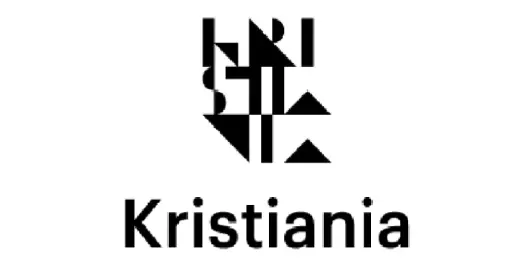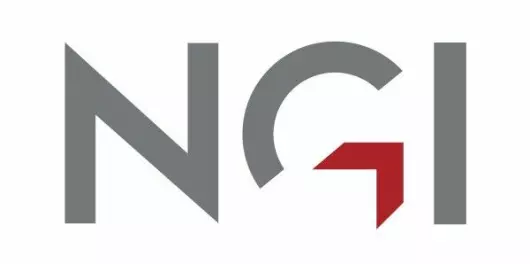Ledig stilling på Universitetet i Oslo
Blindern og Urbygningen (Foto: Wikimedia og Colourbox)
Postdoctoral Research Fellow - "Private Lives"-project
Deadline: 01.08.2020
Universitetet i Oslo
The University of Oslo is Norway’s oldest and highest ranked educational and research institution, with 28 000 students and 7000 employees. With its broad range of academic disciplines and internationally recognised research communities, UiO is an important contributor to society.
Applicants for 2 Postdoc positions in "Private Lives"-project wanted
Job description
The postdoctoral fellows will be conducting fieldwork that will yield insight into contemporary Norwegian/Nordic sociality as everyday lives are increasingly digitalized through social media and digital platforms for communication and community building. For more information, click here
Applications are invited for two 35-months positions as Postdoctoral Fellow (SKO 1352) of Social Anthropology to be based at the Department of Social Anthropology, University of Oslo. The positions will be part of the research project Private Lives: Embedding Sociality at Digital 'Kitchen-tables’ led by professor Marianne Lien, and funded by Research Council Norway.
How does digital technology embed social relations? How does it reconfigure privacy and senses of belonging? With Marianne Gullestad’s ‘Kitchen Table Society’ as a reference for Nordic sociality, and with digitalized everyday lives as our explicit focus, this project seeks to enhance and renew ethnographic methods, and revitalize Nordic ethnography as a site of theoretical innovation. Through four ethnographic case studies, Private Lives will bring new knowledge about contemporary Nordic sociality as everyday lives are increasingly digitalized through social media and digital platforms.
Successful applicants will form part of an active project group at the Department of Social Anthropology and will be involved in collaborations with the Norwegian Museum of Science and Technology and the Norwegian Institute for Nature Research. About 10% of the scheduled time will be allocated to shared project tasks specified as follows:
Postdoctoral Fellow 1 will take on responsibility for dissemination through a planned exhibition at the Norwegian Museum of Science and Technology. This requires collaborative skills, and an interest in dissemination through visual and digital media. Experience with exhibition work and/or visual anthropology or visual art is an advantage. Postdoctoral Fellow 2 will take on responsibility for a digital ethnography workshop and a conference, and will be involved in editing joint publications. This requires collaborative skills and an interest in editorial tasks. Experience with organizational work, administration and editing is an advantage.
For both Postdocotoral Fellows, enthusiasm for group work is a must, along with the ability to take on responsibility and deliver in a timely manner. Both Postdoctoral Fellows will conduct individual fieldwork and analysis within the project theme as specified in advance, based on the following three options. For all three options, a sub-project proposal must be developed (max 5 pages).
Option 1: Digitalised belief: Religion, belonging and the global congregation
Norway is often described as a secular or post-Christian society, yet, beneath a seemingly secular surface, spiritual, religious belief is flourishing. Some of the more vibrant congregations, such as Pentecostals, have a global reach, and digitalization appears to have the potential to broaden and deepen religious belief. This sub-project shall explore the intersections of religious belief, digitalization and everyday life. This subproject will explore how local congregations experience the process of secularization, and to what extent (and how) digital media offer novel articulations of personhood, religious community and belief. What does the religious ‘kitchen table’ look like, and who gathers around it? Where and how are boundaries between the private and the public drawn, when deeply personal religious experiences are shared as testimonies on YouTube?
Option 2: Morality, masculinity and mobile lives; Digitalised social formations in rural Norway
Sociality in rural Norway contains an intrinsic double aspect of social control and social belonging. What happens to such mechanisms when digital platforms offer new possibilities for identification and fellowship? To what extent is traditional community solidarity maintained and to what extent do new social fields emerge? Fieldwork will be carried out in a rural village focusing on interrelated themes, such as for example:
Morality and social control: To what extent may small communities become even smaller as social media reinforces its transparency and lack of privacy?
Urban-rural mobility and commute: To what extent is digitalised technology facilitating a changing composition of rural communities in terms of class, political organisation and perspectives?
Political polarization and rural activism: To what extent is polarization facilitated through digitialised social media, and how might digitalization transform local rural mobilization?
Option 3: An open call
Applicants are invited to design a sub-project on a topic of their choice. The project must involve digital ethnography, and address key dimensions of the project ‘Private Lives’ as specified in the full project proposal.
For further information, see https://www.sv.uio.no/sai/english/research/projects/private-lives/. A full project proposal will be shared with potential applicants upon request.
More about the position
The Department wishes to recruit candidates with excellent research qualifications within Social Anthropology or a related discipline. The applicants’ proposed research should relate to one of the proposed positions (see above). The successful candidate is expected to strengthen this research area within the Department, and to contribute to and participate in other research activities at the Department as well.
The appointments are fulltime positions for a period of 35 months. Each Postdoctoral Fellow will spend three months abroad as visiting scholar. Except for fieldwork, the remaining time should be spent in residence in Oslo.
The main purpose of the fellowship is to qualify researchers for work in higher academic positions within the discipline.
Qualification requirements
- Applicants must hold a degree equivalent to a Norwegian doctoral degree in Social Anthropology, or a closely related discipline (e.g. human geography or qualitative sociology). Doctoral dissertation must be submitted for evaluation by the closing date. Appointment is dependent on the public defense of the doctoral thesis being approved. Applicants with a PhD earlier than 2015 will not be considered. (Exceptions are granted on the basis of documented parental leave within this period.)
- Excellent oral and written communication skills in English and a Scandinavian language.
The following qualifications will count in the assessment of the applicants:
In assessing the applications, special emphasis will be placed on the applicant's academic and personal prerequisites to carry out the project, including collaborative skills. A good match between the candidate's qualifications and the project’s planned activities (including the specific requirements for each post doc position) is a main selection criterion, along with the quality of the proposal and the general qualifications of the candidate.
We offer
- salary NOK 523 200-605 500 per annum depending on qualifications in position as Postdoctoral Research Fellow (position code 1352)
- a professionally stimulating working environment
- attractive welfare benefits and a generous pension agreement, in addition to Oslo’s family-friendly environment with its rich opportunities for culture and outdoor activities
- funds for research, travel, conference participation and dissemination, books and equipment
How to apply
The application must include
- cover letter (statement of motivation, summarizing scientific work and research interest)
- Project description, including progress plan (max. 5 pages excluding references), outlining the work to be undertaken during the course of the term of appointment
- CV (summarizing education, positions, pedagogical experience, administrative experience and other qualifying activity)
- copies of educational certificates (academic transcripts only)
- a complete list of publications
Selected candidates will be asked to submit
- 3 pieces of academic works that the applicant wishes to be considered
- List of reference persons: 2-3 references (name, relation to candidate, e-mail and phone number)
The application with attachments must be delivered in our electronic recruiting system. Foreign applicants are advised to attach an explanation of their University's grading system. Please note that all documents should be in English or a Scandinavian language.
Interviews with the best qualified candidates will be arranged.
It is expected that the successful candidate will be able to complete the project in the course of the period of employment.
Formal regulations
Please see the guidelines and regulations for appointments to Postdoctoral fellowships at the University of Oslo.
No one can be appointed for more than one Postdoctoral Fellow period at the University of Oslo.
According to the Norwegian Freedom of Information Act (Offentleglova) information about the applicant may be included in the public applicant list, also in cases where the applicant has requested non-disclosure.
The University of Oslo has an agreement for all employees, aiming to secure rights to research results etc.
The University of Oslo aims to achieve a balanced gender composition in the workforce and to recruit people with ethnic minority backgrounds.
Contact information
- Professor Marianne Lien (m.e.lien@sai.uio.no)
- Head of Department Rune Flikke (rune.flikke@sai.uio.no)
- Head of Administration Nina Rundgren (nina.rundgren@sai.uio.no)
Apply for position













